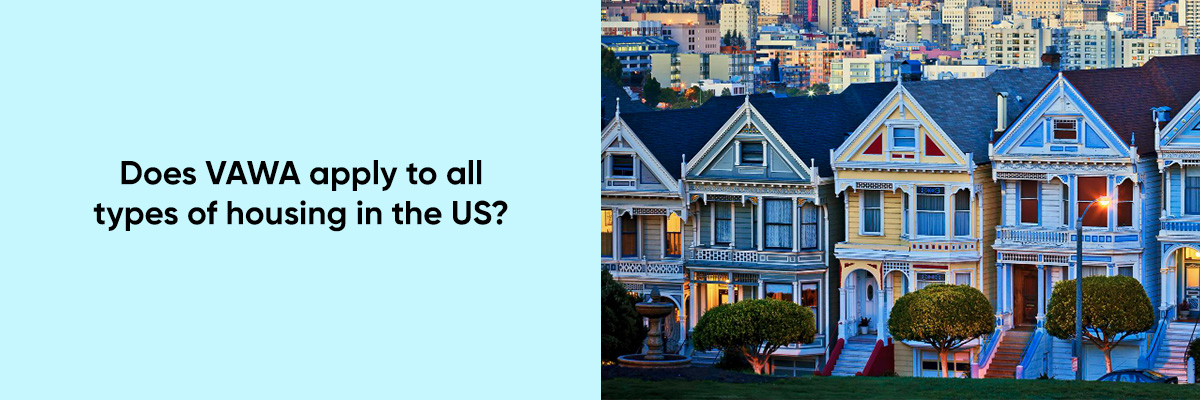No, VAWA (Violence Against Women Act) housing protections don’t apply to all types of housing. It applies specifically to federally subsidized housing programs.
This includes things like public housing, Section 8 vouchers, and housing for people with disabilities or AIDS funded by the federal government. The managers have to implement VAWA on sites and set up a smooth plan in place beforehand to deal with the VAWA complaints to ensure compliance with the laws.
Private landlords typically are not required to follow VAWA protections for tenants.
Let’s understand this better in this blog.
Understanding VAWA:
Violence Against Women Act (VAWA) stands as a pivotal legislation aimed at protecting survivors of domestic violence, dating violence, sexual assault, and stalking. Enacted in 1994, VAWA has undergone amendments to enhance its scope and efficacy.
VAWA’s primary objective is to provide survivors of gender-based violence with legal remedies and support services. It offers crucial protections against eviction or denial of housing assistance based on an individual’s status as a survivor of domestic violence, dating violence, sexual assault, or stalking. VAWA covers both public and subsidized housing programs, ensuring survivors can seek safety without the fear of losing their housing.
Application of VAWA in Different Housing Settings:
Public Housing:
Public housing refers to government-owned properties designated for low-income families, the elderly, and individuals with disabilities. VAWA applies comprehensively to public housing, safeguarding survivors’ rights to maintain their residency. Public housing authorities must adhere to VAWA regulations, including eviction protections and reasonable accommodations for survivors.



Section 8 Housing Choice Voucher Program:
Under the Section 8 program, individuals receive vouchers to subsidize their rent in privately-owned properties. VAWA extends its protections to participants in the Section 8 program, prohibiting landlords from terminating or refusing to renew leases based on a tenant’s status as a survivor. Moreover, VAWA ensures survivors can transfer their vouchers to a safer location if necessary.
Rural Development Housing Programs:
USDA Rural Development offers various housing programs aimed at rural communities, including single-family housing loans and rental assistance. VAWA protections apply to individuals residing in properties financed or subsidized by USDA Rural Development, safeguarding survivors’ housing stability and safety.
Federally Insured Mortgages:
For individuals with federally insured mortgages, such as those insured by the Federal Housing Administration (FHA), VAWA provides safeguards against discriminatory treatment or foreclosure based on experiencing domestic violence, dating violence, sexual assault, or stalking. Survivors have rights to request mortgage assistance or modifications under VAWA provisions.
Homeless Shelters and Transitional Housing:
While VAWA primarily focuses on permanent housing, it also extends protections to survivors residing in emergency shelters or transitional housing facilities. These settings must comply with VAWA regulations, ensuring survivors receive adequate support and protection from further harm.
So, VAWA applies to public housing, section 8, rural development housing, federally insured ones. The housing managers should keep themselves updated and know everything about VAWA. This is because, VAWA compliance can affect the property managers, and it can create compliance issues.
End Note:
VAWA serves as a critical lifeline for survivors of gender-based violence across various housing settings in the US. Whether in public housing, Section 8 programs, rural development properties, or federally insured mortgages, VAWA’s provisions ensure survivors can seek safety without jeopardizing their housing stability. However, survivors need to understand their rights under VAWA and seek assistance from advocacy organizations and legal services if facing housing discrimination or eviction threats. As we strive for safer and more inclusive communities, VAWA stands as a beacon of hope, championing the rights and dignity of survivors nationwide.


